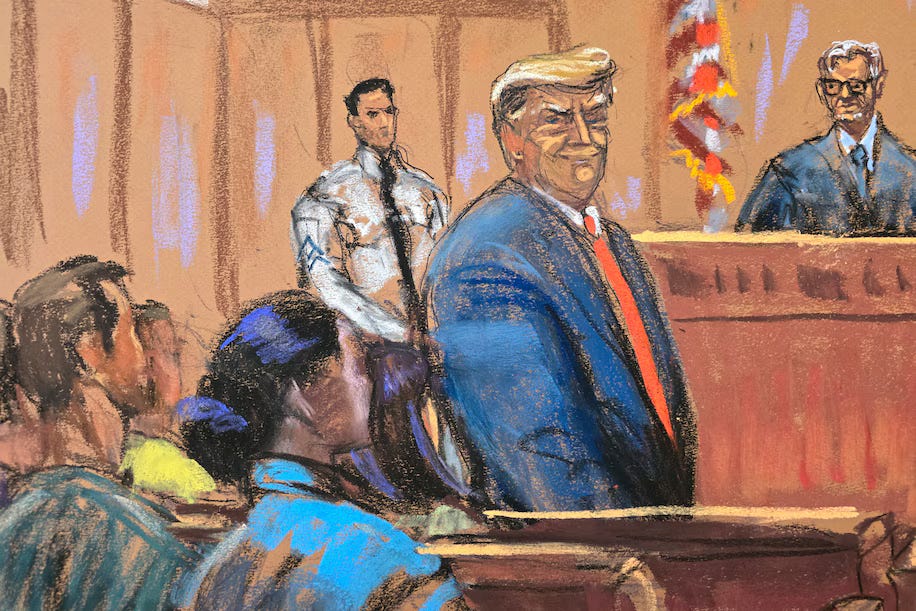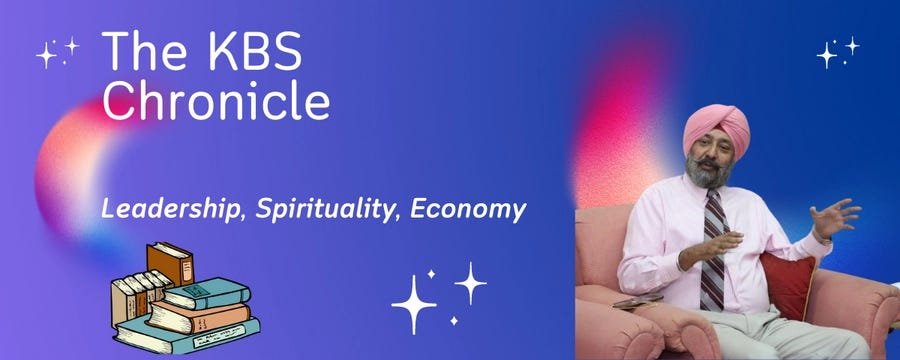Jury Selection in Trump’s Criminal Trial: A Tortuous Process
By the end of Tuesday, 16th April, six jurors had been selected; Wednesday was a day the Court devoted to other matters, while trump went off on campaign trail.

Jury Selection in Trump’s Criminal Trial: A Complex Puzzle
The jury selection process for Donald Trump’s unprecedented criminal trial in New York has been a meticulous and intensely scrutinized affair so far. As the Manhattan Court, presided over by Judge Juan M. Merchan, endeavors to assemble a jury capable of impartially adjudicating the charges against the former President, the stakes are high. Each prospective juror undergoes rigorous examination, with both defense and prosecution teams delving deep into social media histories to uncover potential biases. This modern-day vetting process, likened by jury consultant Jo-Ellan Dimitrius to a “juror polygraph,” highlights the challenges of ensuring a fair trial in the age of digital footprints.
Profiles of the Selected Jurors
The first seven jurors— chosen till Tuesday, Wednesday being reserved by the Court for other matters— for Donald Trump's criminal trial present a microcosm of New York's rich tapestry of residents, each bringing a unique perspective shaped by their diverse backgrounds and daily lives. Juror 1 is a West Harlem-based sales professional, married and with a penchant for outdoor activities; he keeps himself informed through a mix of The New York Times, Fox News, and MSNBC. Juror 2, an engaged oncology nurse from the Upper East Side, enjoys her time with family and her dog, sourcing her news from CNN, The New York Times, Google, and Facebook. The third juror, a young corporate lawyer residing in Chelsea, maintains a healthy lifestyle with interests in hiking and running, and stays updated through The New York Times, The Wall Street Journal, and Google.
Juror 4, from the Lower East Side, works in IT training and consulting. As a family man with one child and two grandchildren, he finds little spare time, relying on the New York Daily News, The New York Times, Google, and X for his news. Juror 5, a teacher from Harlem, shares a home with her boyfriend and enjoys writing, theater, and travel; her insights are shaped by Google, TikTok, and relationship podcasts. The sixth juror, a software engineer also from Chelsea, taps into The New York Times, Google, Facebook, and TikTok for her information. Finally, Juror 7, another attorney from the Upper East Side, relishes his time outdoors and is informed by The New York Times, The Wall Street Journal, the New York Post, and the Washington Post.
This eclectic group not only reflects New York’s diverse societal fabric but also illustrates the broad spectrum of media consumption habits that could influence their perceptions and judgments in the trial.
Trump’s Courtroom Conduct
Amidst the unfolding legal drama, Donald Trump’s behavior in court has not gone unnoticed. Known for his direct and often provocative persona, Trump has had multiple outbursts during the proceedings, including audible comments and gestures toward jurors that have drawn rebukes from Judge Juan M. Merchan. These actions have prompted discussions about courtroom decorum and the potential need for sanctions against Trump, illustrating the unique challenges of managing a high-profile defendant.
The Stormy Daniels Subpoena
Adding to the trial’s complexity is the involvement of Stormy Daniels, whose expected testimony relates to allegations that Trump falsified business records to conceal a payment made during the 2016 campaign. Recent attempts to subpoena Daniels have resulted in a notable courtroom skirmish, with Trump’s lawyers alleging non-compliance by Daniels and seeking to compel her testimony about the hush money payment. This legal maneuvering continues to draw significant media attention, underscoring the trial’s implications for Trump’s legacy.
Summing: An Ongoing Legal Battle
As the jury selection process continues, the trial is expected to remain a focal point of national interest, reflecting deeper questions about accountability and justice in American politics. With both sides poised to present their cases, the outcome of this trial could have profound effects on the legal and political landscape. Meanwhile, Trump’s interactions in Court may well continue to influence public perception and the proceedings themselves, marking this trial as a defining moment in his post-presidential life.
Meanwhile, we shall return to the theatre of action after the end of proceedings on Thursday, New York Time, to keep our esteemed readers updated.




